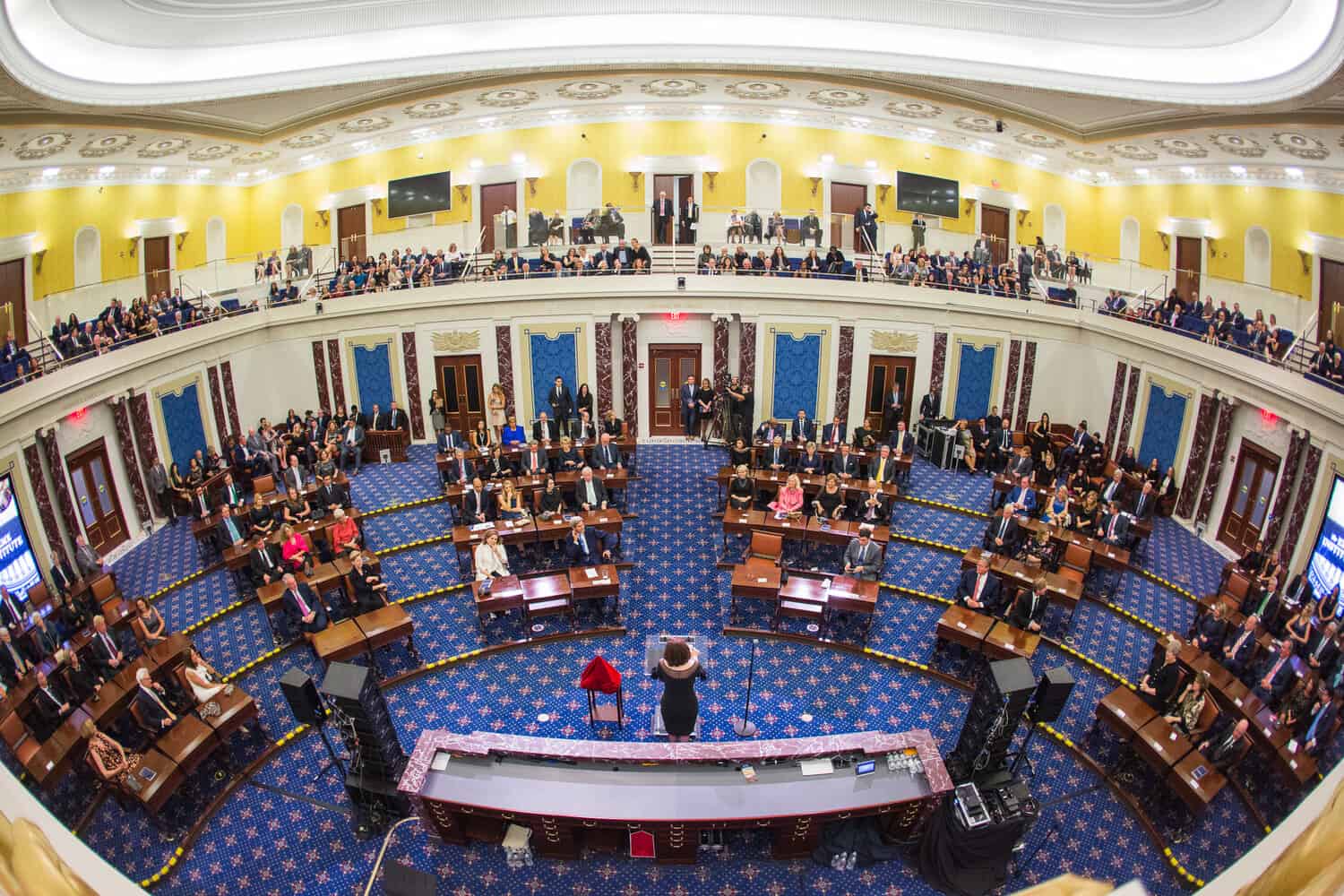
Miriam Shestack is a student at Harvard Law School.
In today’s News and Commentary: proposed federal legislation to protect domestic workers, workers written out of a newly passed federal semiconductor production initiative, a potential criminal inquiry at Amazon, union workers find solidarity amid struggle in Ukraine, and unions demand change in Sri Lanka.
Beginning at 10:00 AM today the House Education and Labor Committee is holding a hearing for the Federal Domestic Worker Bill of Rights. National Domestic Workers Alliance Founder and President Ai-jen Poo is to testify at the hearing while domestic worker leaders gather on the Hill to support the proposed legislation. The bill is co-sponsored by Senators Kristen Gillibrand and Ben Ray Luján, and Representative Pramila Jayapal. Domestic workers like homecare providers, nannies, and house cleaners have historically been excluded from basic labor protections. The secluded nature of their work in private homes makes domestic workers vulnerable to exploitation and abuse.
Several pro-worker proposals included in a US House-passed version of a semiconductor incentive bill did not make it into the new, pared-down version of the package just passed in the Senate. Unions and House Democrats pushed for “union neutrality” requirements, extensive prevailing wage mandates, and expanded apprenticeship programs in the version of the bill passed by the house in February. While workforce training is still prioritized in new bill, and some construction projects will still have to meet prevailing wage obligations, it does far less to advance a labor agenda than advocates hoped. The package, worth $280 billion, was framed as part of a broad industrial policy aiming to compete with China.
A current Justice Department investigation into Amazon worker safety could be part of a wider criminal inquiry, labor law scholars told Bloomberg. The investigation could delve into questions of whether Amazon engaged in widespread misreporting of injury and illness rates, criminal and labor law scholars say. The US Occupational Safety and Health Administration (OSHA) and the US Attorney’s Office for the Southern District of New York announced July 22 the start of an investigation and work site inspections based, in part, on complaints received by the prosecutor’s office. Chicago Law School professor Jonathan Masur told Bloomberg Law, “I don’t think the US attorney’s office would become involved unless there was some evidence that there was a pattern of practice of Amazon in concealing information from OSHA, trying to hide its safety record from OSHA, lying to OSHA inspectors over a concerted period of time,” Close collaboration between OSHA and prosecutors is rare, and could bring the case out of OSHA administrative law and into federal criminal law opening the door for larger penalties and a longer statute of limitations than OSHA law allows.
Around the world, with 90 per cent of construction workers out of work in Ukraine, the Construction and Building Materials Industry Workers’ Union (PROFBUD) has launched new services. Efforts include humanitarian assistance and medical support for internally displaced persons, creating shelters in trade union facilities since the beginning of March. The union has also provided financial assistance to unionized workers with tens of thousands having not received a salary since the end of February. Meanwhile, IndustriALL reports that amid war, Ukraine has adopted a new law that erodes protections for workers at small and medium-sized companies over the objections of trade union leaders.
In the wake of uprisings that led President Gotabaya Rajapaksa to resign and flee the country, Sri Lankan unions are demanding constitutional reforms. Economic crisis brought on in part by the pandemic drop in tourism has left Sri Lankans struggling to find food and fuel, and led to a significant decline in export manufacturing. IndustriALL affiliates in the country are demanding the abolishment of the executive presidency, that fuel, gas, and other essential commodities are provided at concessionary rates for workers, and that any agreement made with the International Monetary Fund is made public before an official endorsement, among other demands.






Daily News & Commentary
Start your day with our roundup of the latest labor developments. See all
February 13
Sex workers in Nevada fight to become the nation’s first to unionize; industry groups push NLRB to establish a more business-friendly test for independent contractor status; and UFCW launches an anti-AI price setting in grocery store campaign.
February 12
Teamsters sue UPS over buyout program; flight attendants and pilots call for leadership change at American Airlines; and Argentina considers major labor reforms despite forceful opposition.
February 11
Hollywood begins negotiations for a new labor agreement with writers and actors; the EEOC launches an investigation into Nike’s DEI programs and potential discrimination against white workers; and Mayor Mamdani circulates a memo regarding the city’s Economic Development Corporation.
February 10
San Francisco teachers walk out; NLRB reverses course on SpaceX; NYC nurses secure tentative agreements.
February 9
FTC argues DEI is anticompetitive collusion, Supreme Court may decide scope of exception to forced arbitration, NJ pauses ABC test rule.
February 8
The Second Circuit rejects a constitutional challenge to the NLRB, pharmacy and lab technicians join a California healthcare strike, and the EEOC defends a single better-paid worker standard in Equal Pay Act suits.